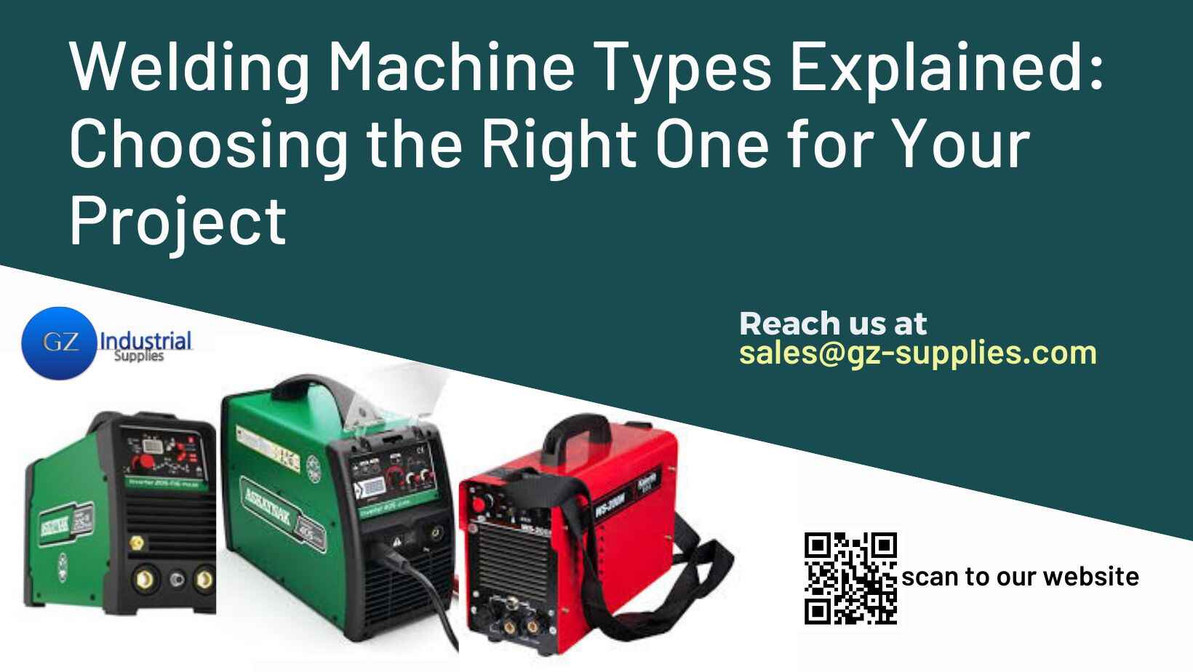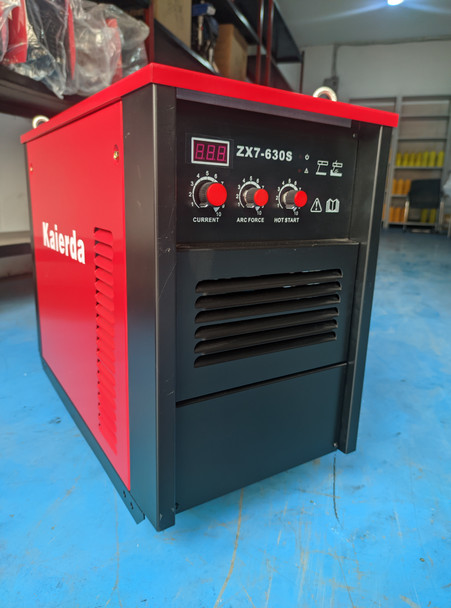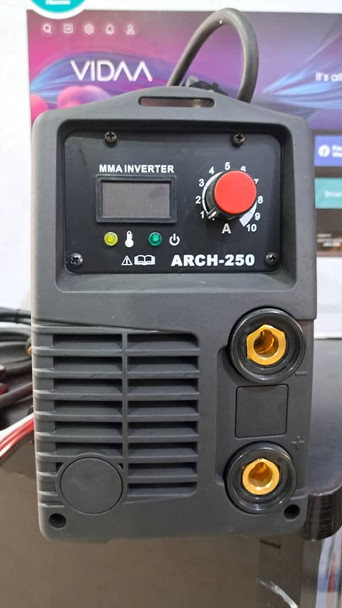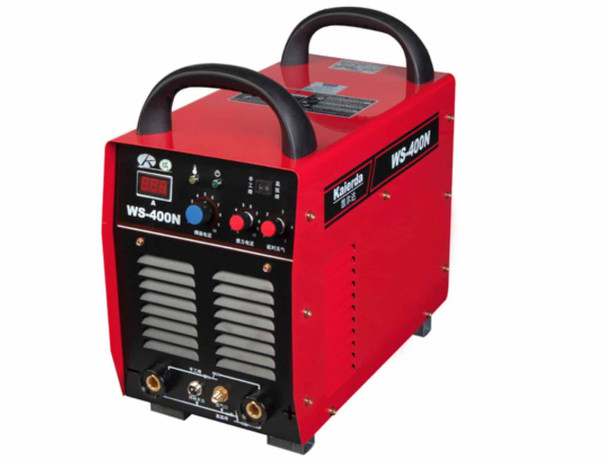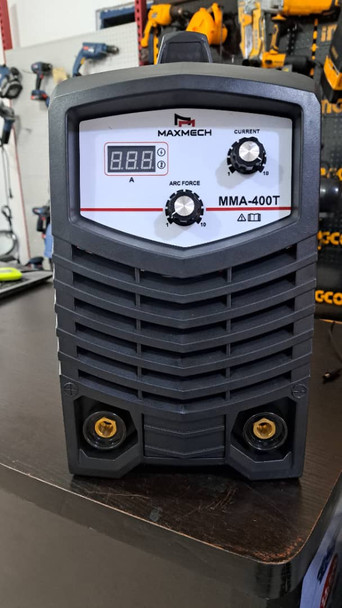Welding Machine Types Explained: Choosing the Right One for Your Project
Key Takeaway
- MIG Welding: Ideal for beginners and versatile for most metal types, providing fast and easy operation.
- TIG Welding: Best for precise, high-quality welds, commonly used for thin materials like aluminum and stainless steel.
- Stick Welding (SMAW): Suitable for outdoor and dirty environments, providing strong welds for thicker metals.
- Flux-Cored Welding: Excellent for welding thicker materials and can be used in windy or outdoor settings.
Introduction
Welding machines are essential tools in various industries, from construction to automotive and even DIY projects. Choosing the right welding machine can make or break your project, ensuring that you achieve high-quality welds while minimizing waste and inefficiencies. Each welding process has unique strengths and is suited for different types of materials and projects.
Different welding machines offer distinct advantages depending on the type of metal, material thickness, and working environment. MIG welding machines are versatile and easy to use, making them ideal for beginners and general-purpose projects. TIG welding machines provide precise, high-quality welds, perfect for delicate materials like aluminum and stainless steel.
For outdoor work or dirty environments, Stick welding (SMAW) offers reliable strength for thicker metals. Flux-cored welders are great for heavy-duty jobs, especially in outdoor conditions, while Plasma welding is suited for precision tasks requiring high heat. By understanding the strengths of each welding machine type, you can select the one that best fits your project needs, ensuring efficiency and top-notch results.
In this guide, we’ll explore different welding machine types and help you understand how to choose the best one based on your specific project needs.
Kaierda Inverter Manual Arc Welding Machine (ZX7-630S)
Key Factors to Consider When Choosing a Welding Machine
When selecting a welding machine, several factors will influence your decision. Understanding these will help you narrow down your options and choose a machine that perfectly fits your requirements.
1. Material Type: The first step is knowing the type of metal you’ll be working with. Whether it's steel, aluminum, or stainless steel, each material has different properties that require different welding techniques. For example, aluminum generally requires a TIG welding machine, while steel is compatible with MIG and Stick welding.
2. Thickness of Material: Material thickness directly affects the welding method and machine you need. Thin materials are better suited for TIG welding, which provides precise control, while thicker materials work well with Stick or MIG welding machines, which offer deeper penetration.
3. Welding Environment: The location and conditions where you'll be welding play a critical role in your choice of machine. MIG welding is ideal for indoor work, while Stick welding is better for outdoor or industrial settings where wind or other environmental factors could affect shielding gas.
4. Power Requirements: Some welding machines require higher voltage (220V), while others can operate on standard household power (110V). Ensure that your worksite can accommodate the power demands of the welding machine you're considering.
5. Skill Level: Welding machines vary in complexity. If you're a beginner, opting for a user-friendly MIG welder is ideal since it requires less precision and provides consistent results. Experienced welders, on the other hand, might prefer the fine control offered by TIG welding.
Common Types of Welding Machines
Understanding the different types of welding machines is key to making an informed decision. Each type has unique features, pros, and cons that make it suitable for certain applications.
1. MIG Welding Machine (Metal Inert Gas)
How it Works: MIG welding uses a wire electrode that is fed through a welding gun. The weld area is protected by an inert gas to prevent contamination from the surrounding atmosphere.
Applications: MIG welding is versatile and can be used for a variety of materials, including steel and aluminum. It is commonly used in automotive repair, fabrication, and hobbyist projects.
Pros: Easy to learn, fast welding speeds, suitable for beginners.
Cons: Not ideal for outdoor use due to the need for shielding gas.
2. TIG Welding Machine (Tungsten Inert Gas)
How it Works: TIG welding uses a non-consumable tungsten electrode and an inert gas (usually argon) to protect the weld. It’s known for its precision and control, especially when welding thin materials.
Applications: TIG welding is often used in industries that require high-quality welds, such as aerospace and automotive. It’s perfect for stainless steel and non-ferrous metals like aluminum and copper.
Pros: Produces high-quality, clean welds. Offers precise control for delicate materials.
Cons: More difficult to master, slower than MIG and Stick welding, and generally more expensive.
KAIERDA MMA WELDING SERIES ARC250
3. Stick Welding Machine (Shielded Metal Arc Welding)
How it Works: Stick welding uses an electrode coated in flux that melts to create the weld. The flux forms a gas shield, eliminating the need for external gas.
Applications: Stick welding is ideal for outdoor work, especially in construction and industrial environments, as it can handle rusted or dirty surfaces.
Pros: Affordable, works well in various weather conditions, and doesn’t require shielding gas.
Cons: Not as neat as MIG or TIG welding, more spatter, and harder to use on thin materials.
4. Flux-Cored Welding Machine
How it Works: Flux-cored arc welding (FCAW) is similar to MIG welding but uses a special tubular wire filled with flux. This process can be done with or without shielding gas, depending on the type of wire used.
Applications: Flux-cored welding is often used in heavy-duty industrial settings, such as shipbuilding and construction, because it can weld thicker materials and is ideal for outdoor work.
Pros: High welding speed, great for thick materials, and performs well in outdoor environments.
Cons: More spatter than MIG welding, requires cleaning after welding, and generally more expensive wire.
5. Plasma Arc Welding Machine
How it Works: Plasma arc welding is a precision process that uses a superheated plasma arc to melt the base material. This method is similar to TIG welding but offers more focused energy, making it suitable for precision tasks.
Applications: Plasma welding is typically used in industries like aerospace and electronics, where fine, precise welds are required on small, delicate components.
Pros: Extremely precise, produces high-quality welds, suitable for thin materials.
Cons: Expensive, requires a high skill level, and slower than other welding methods.
6. Spot Welding Machine
How it Works: Spot welding uses two copper electrodes to apply pressure and heat to the spot where two pieces of metal are joined. The heat is generated by electrical resistance, and no filler material or gas is required.
Applications: Spot welding is widely used in the automotive industry and for welding sheet metal.
Pros: Fast and efficient for sheet metal and thin materials, produces clean welds.
Cons: Limited to specific applications (e.g., sheets), not versatile for other welding tasks.
Kaierda Tig Welding machine WS400N
Specialized Welding Machines for Niche Applications
Sometimes, you’ll need specialized welding machines tailored for very specific tasks. Here are a few:
1. Multipurpose Machines: Some machines are designed to perform multiple types of welding processes (e.g., a MIG/TIG/Stick combo welder). These are ideal for those who need versatility in a single machine.
2. Pipe Welding Machines: Specifically designed for welding round pipe and tubing, these machines are heavily used in industries like oil and gas, plumbing, and manufacturing.
3. Portable Welding Machines: For fieldwork or projects that require mobility, portable welding machines offer the convenience of lightweight design without sacrificing power.
Matching the Welding Machine to Your Project
Selecting the right welding machine depends on your specific project needs. Here's a breakdown of what to consider for different project types:
1. Small DIY Projects: If you’re working on home repairs or hobbyist projects with light materials, a MIG or flux-cored machine will do the job. They’re affordable, easy to use, and offer enough versatility for most small tasks.
2. Automotive Repair: MIG welders are the most commonly used for automotive repairs because of their ability to handle a variety of materials and their ease of use. For bodywork and thinner materials, a TIG welder is ideal because of its precision.
3. Industrial Applications: For heavy-duty work, such as construction, shipbuilding, or structural repairs, a Stick or flux-cored machine will provide the durability and power you need. These machines are also more forgiving of dirty or rusted surfaces.
4. Precision Projects: If your project requires clean, precise welds—such as in the aerospace, electronics, or fine metalwork industries—TIG or plasma arc welding will give you the accuracy you need.
Budget Considerations
While it’s tempting to go for the cheapest option, it’s important to balance cost with long-term performance. A cheaper machine may meet your immediate needs, but if you plan on working on more complex or frequent projects, investing in a higher-end model can save you time and money in the long run. Here are some key budget tips:
1. Basic vs. Advanced Models: Basic MIG and Stick welders are affordable and suitable for most beginners. However, if you need more control and versatility, higher-end machines like TIG or multipurpose welders are worth the extra investment.
2. Long-term Value: Consider the machine’s durability and the cost of consumables (such as electrodes, filler wire, or gas) over time. A slightly higher upfront cost may result in savings if the machine has a longer lifespan and lower operating costs.
MaxMech Welding Machine MMA-400T
Frequently Asked Questions
1. What is the best welding machine for a beginner?
For beginners, a MIG welding machine is often the best choice because it’s easy to use, requires minimal setup, and offers consistent, clean welds. It's forgiving for those just learning the technique.
2. Can I weld aluminum with a MIG welder?
Yes, you can weld aluminum with a MIG welder, but you will need to use a spool gun attachment and specific aluminum wire. TIG welding is often preferred for aluminum due to better control and cleaner welds.
3. What is the difference between MIG and TIG welding?
MIG welding is easier and faster, making it ideal for larger projects and thicker materials. TIG welding, on the other hand, is more precise, making it suitable for thin materials and high-quality finishes.
4. Do I need shielding gas for welding?
Yes, shielding gas is needed for MIG and TIG welding to protect the weld from contamination. However, flux-cored welding (a type of MIG) can be done without shielding gas, making it better for outdoor work.
5. How do I maintain my welding machine?
Regular maintenance involves cleaning the machine after use, checking and replacing worn-out parts like the electrode holder and cables, and ensuring the machine’s power connections are secure. Always follow the manufacturer’s maintenance instructions to prolong the lifespan of your welding machine.
Related Articles
The Ultimate Guide to Arc Welding Machines: Types, Features, and Applications
Lead to buy a good welding machine in Nigeria
How to Choose the Best Welding Machine for Your Projects in Nigeria
Readers also Watched...
Conclusion
Choosing the right welding machine depends on the specific requirements of your project, including the type of metal, material thickness, and working environment. Whether you need the versatility of MIG welding, the precision of TIG, or the durability of Stick welding, understanding the strengths of each machine type will help you make an informed decision. By selecting the correct welding machine, you can ensure high-quality results, increased efficiency, and a smoother workflow. Take the time to assess your project’s needs and invest in the right equipment for optimal performance.
Looking for the right welding machine for your next project? Visit GZ Industrial Supplies today for a wide range of high-quality welding machines, consumables, and accessories. Our experts are ready to help you find the perfect solution, whether you're a beginner or a seasoned professional.
Recent Posts
-
Why Serious Mechanics Are Switching to Japanese-Made Shinano Air Tools
Japanese-Made Shinano Air Tools Key takeaway: Shinano’s tight-tolerance, twin-hammer designs d …Apr 24, 2025 -
Top 10 Hand Tool Brands for Professionals
Introduction When it comes to professional hand tools, quality, durability, and reliability are para …Apr 23, 2025 -
HOW DOES CORROSION INHIBITOR WORK
Introduction Corrosion has posed a lot of problems to various companies and industries; by interfer …Apr 22, 2025

